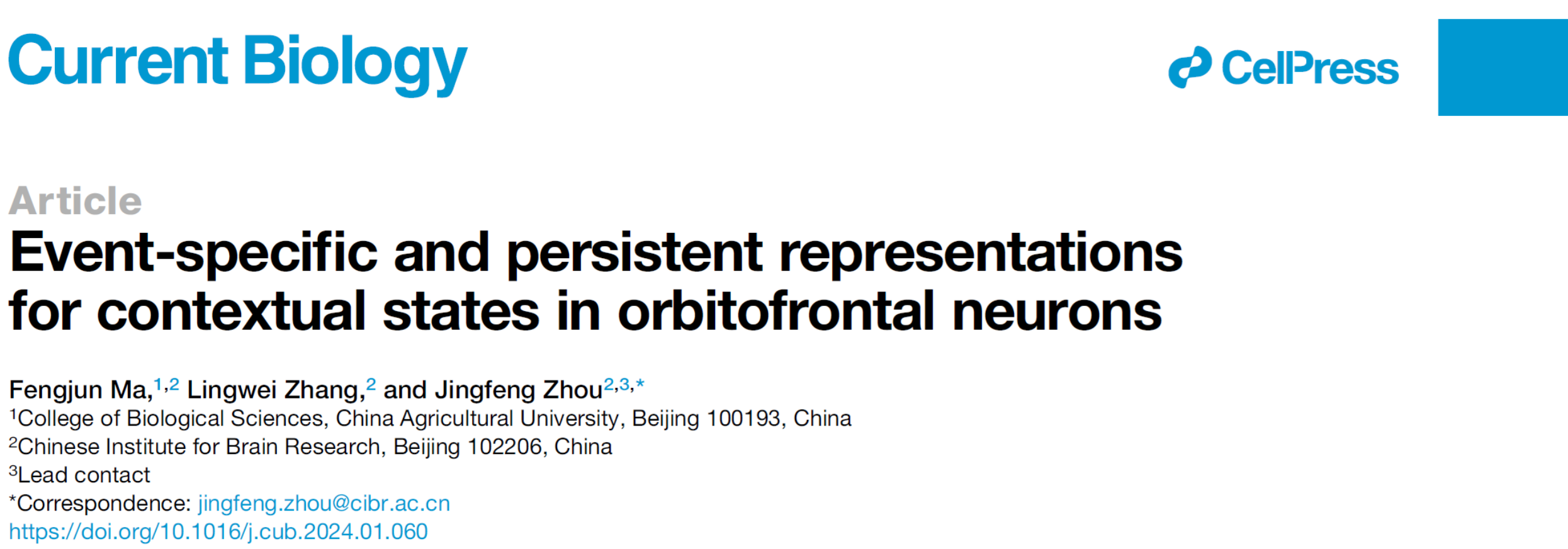Fengjun's paper, published in Current Biology, reveals event-specific and persistent representations for contextual states in rat orbitofrontal neurons.

Summary
Flexible and context-dependent behaviors require animals, including humans, to identify their current contextual state for proper rules to apply, especially when information that defines these states is partially observable. Depending on behavioral needs, contextual states usually persist for prolonged periods and across other events, including sensory stimuli, actions, and rewards, highlighting prominent challenges of holding a reliable state representation. The orbitofrontal cortex (OFC) is crucial in behaviors requiring the identification of the current context (e.g., reversal learning); however, how single units in the OFC accomplish this function has not been assessed. Do they maintain such information persistently, in separate populations from those responding phasically to events within a task, or is contextual information dynamic and embedded in these phasic responses? Here, we investigated this question by recording single units from OFC in rats performing a task that required them to identify the current contextual state related to estimated proximity to future reward with distracting olfactory cues. We found that while some OFC neurons encode contextual states, most change their selectivity upon the transition of task events. Nevertheless, despite dynamic activities in single neurons, the neural populations maintain persistent representations regarding current contextual states within particular neural subspaces.
Find the full article here.
[Share Link] for free access, available before April 05, 2024.
Read the news.

